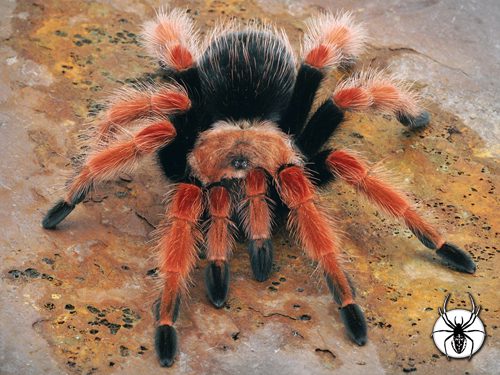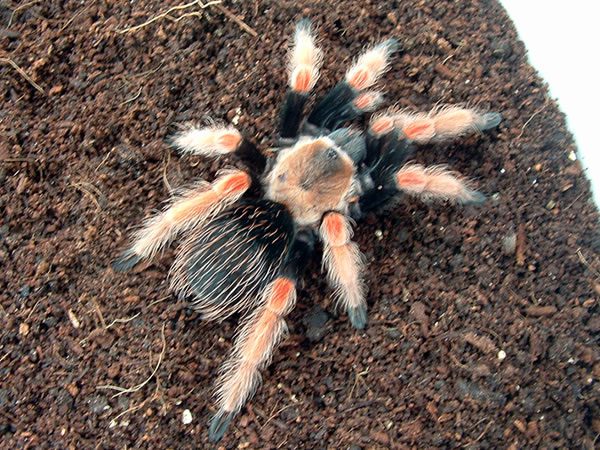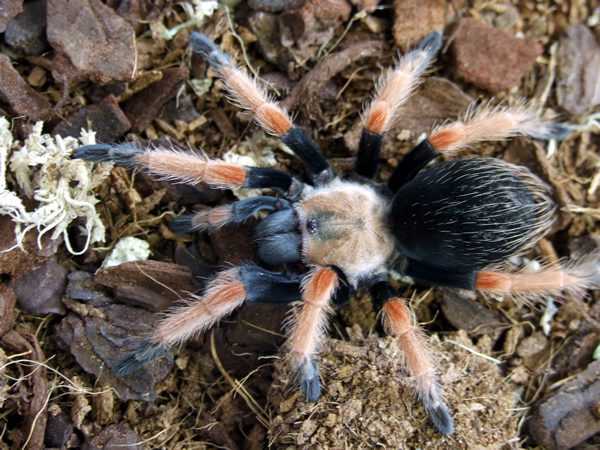Brachypelma bohemi
Mexican Fire Leg (1-2cm)
SCHMIDT & KLAAS. 1993
Species Info:
Origin
Lifestyle
Temp
Humidity
Leg Span
Disposition
Suitability
Extremely colourful, this considered threatened species (CITES, Appendix II listed) of Tarantula is always on the wish list of every tarantula keeper he who hasn’t yet got one! With a beautiful orange – red carapace and legs (only the femur and tarsis segments are jet black) this is one of the most desirable species of tarantula in captivity. It is a close relative of the Mexican Red Knee (Brachypelma smithi), docile though can be more nervous and may flick here if disturbed. In the wild it is found in arid thorn forests in Michoacan and Guerrero states of Mexico living in burrows as well as under fallen log or large rocks. There was an interesting observation from the wild of finding a ground snake (Sonora michoacanensis) sharing the same burrow with this tarantula species (R.West, 2005).
This species can be kept the same as a Mexican Red Knee (Brachypelma smithi). Keep it on the dry side – this species doesn’t like wet substrate. It must be slightly moist or can even be dry with a shallow water dish always filled with fresh water. Also place a hide in the enclosure though you may find it will spend most of its time out in the open minding its own business. Another Mexican species that has similar colouration as the Brachypelma boehmei is the Aphonopelma bicoloratum (another beautiful species) but it is smaller in size, more skittish and rather slow growing species with a more orange than red colouration.
Captive bred spiderlings are occasionally available and it is not a difficult species to breed. Females produce eggsacks containing about 600 – 800 eggs. Offspring are hardy, good eaters and grows at the average rate, but can grow also rather slow as well. They become reach adult size anywhere from 3 – 5 years. This is species is recommended for beginners but also a nice addition to any collection!


